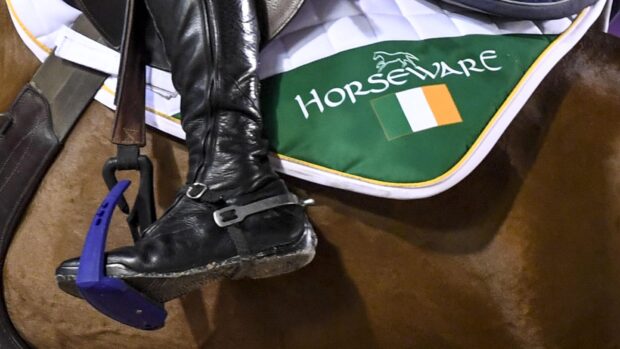A European studbook has announced plans to ban the registration of foals born via certain modern breeding techniques, based on welfare grounds.
The Swedish Warmblood Association (SWB) announced that offspring produced by intra cytoplasmic injection (ICSI) and ovum pick-up (OPU) may not be registered with the association’s studbook from 1 March 2025.
OPU involves collection of oocytes from a mare’s ovarian follicles, carried out under sedation. ICSI is the lab-based process whereby a single sperm is injected into the matured oocyte, which is incubated to encourage an embryo to develop, then transferred into a recipient mare. OPU is carried out in countries around the world including the UK, but is prohibited in Sweden.
Per Jansson, chairman of the SWB board, told H&H the decision was the outcome of a “complete review and evaluation” of the studbook business – and that the association has reviewed its equine welfare regulatory framework annually since 2020.
“According to the Swedish animal welfare act, operative intervention without medical reason, for example OPU, is not allowed, which in practice means that Swedish mares need to travel to other countries where OPU is allowed,” he said, adding that foals born via embryo transfer can still register with the studbook as this procedure “requires no operative intervention and is not painful for the mares involved”.
Mr Jansson said SWB has no “technical” way to ensure breeders are complying with the rule, but the association will require written confirmation when a foal is registered.
“Horse welfare always weighs more heavily for SWA than purely commercial interests. We want to emphasise how important we consider the ethical stance is in the breeding industry and we would like to support the Swedish values and regulations regarding animal welfare,” he said.
World Breeding Federation (WBF) vice president Eva-Maria Broomer told H&H it is “not uncommon” for a studbook to set a precedent; for example some studbooks do not allow cloned horses.
“With these sorts of things it becomes difficult when one studbook makes a decision and others haven’t followed suit, because people will just do it anyway and register elsewhere,” she said.
Dr Broomer said ICSI “raises a range of questions and challenges”, and that the WBF is “monitoring the situation carefully” and gathering data.
“These techniques can be used as a force for good, for example in becoming an important tool in allowing us to preserve and strengthen important breeding lines, but they can also be misused and abused. To prevent this we need full traceability and transparency,” she said.
“This is also important for buyers who should know if they are purchasing an ICSI foal or horse. Issues that are not yet fully understood include if there are long-term impacts on equine health or any discernible health differences between ICSI foals and those who were produced the conventional way.”
Dr Broomer added that the importance of genetic diversity should also be considered.
“Here, again, ICSI can be a force for good by permitting us to use horses for breeding that would not have been able to produce offspring in the conventional way,” she said.
“On the other hand, it could become a limiting factor if it leads to the use of fewer mare-lines by allowing more foals to be produced from a smaller number of lines.”
Equine-assisted reproductive techniques (ART) have come under increasing discussion, and were the focus of a debate at the British Equine Veterinary Association congress in September where industry experts discussed “How far is too far?” (news, 24 October 2023).
It was agreed across the board that pain control during ART procedures needs to be a major focus – and that the breeding industry needs to focus on the lack of research around ART including whether pain is assessed well enough, and whether fertility clinics should be licensed.
You might also be interested in:

‘Pushing the boundaries’ in breeding horses – vets discuss how far is too far

What is ICSI and why is it used in sport horse breeding?

Subscribe to Horse & Hound magazine today – and enjoy unlimited website access all year round
Horse & Hound magazine, out every Thursday, is packed with all the latest news and reports, as well as interviews, specials, nostalgia, vet and training advice. Find how you can enjoy the magazine delivered to your door every week, plus options to upgrade your subscription to access our online service that brings you breaking news and reports as well as other benefits.




